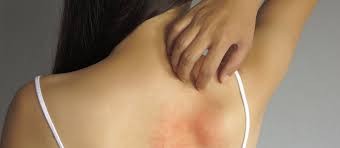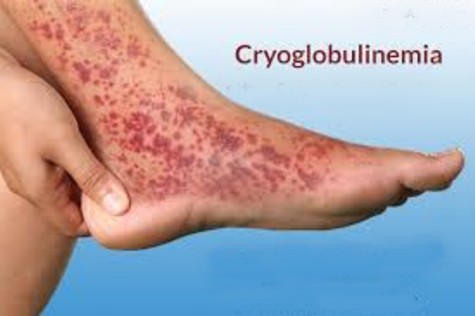Hepatitis C Blog
Greg Jefferys Hepatitis C blog deals with all the issues associated with hepatitis C
skin rashes from hepatitis c
- November 19, 2018
- By Greg Jefferys
- 5 Comments

Hepatitis C rash can produce a terrible itchiness
Itching, Scratching and Rashes from Hepatitis C
A commonly reported side effect of Hepatitis C is a skin rash associated with a terrible itching. Sometimes this Hepatitis C induced skin rash can involve spots or tiny little pimples.
Sometimes this itching also occurs, or starts, at the beginning of Hepatitis C treatment but more often the itching and rashes is a symptom of chronic Hepatitis C.
I have seen some people who have had this Hep C skin rash with itching so bad that they have scratched themselves so badly that they have bled terribly.
So what is it about Hepatitis C that causes this terrible rash and itching?

A Hepatitis C rash can occur anywhere on the body but is often on the hands or feet
Hepatitis C and the Circulatory system
Hepatitis C effects many areas of the body and our general health. This is because one of the liver’s main functions is to clean the blood and remove toxic material.
So, if your blood is not getting cleaned properly this will affect every cell in your body in some way.
Toxins will build up and cause damage.
As well as filtering toxins out of your blood the liver also produces proteins needed for healthy blood and regulating blood clotting.
When I first learned that I had Hep C I was suffering from regular nose bleeds, bleeding gums and slow healing wounds. All of those symptoms left me once the Hep C was cured.
The Hep C Rash: Itching, Scratching and Cryoglobulinemia
There are a lot of health issues that arise from Hep C that many doctors do not realise are caused by a disorder called Cryoglobulinemia.
Cryoglobulinemia is a very long word for a condition that causes many health problems, but basically, cryoglobulinemia means “your blood gets thicker”.
Cryoglobulinemia is one of the most common side effects of Hepatitis C that affects many areas of your health yet is rarely talked about. Cryoglobulinemia is caused by the Hepatitis C infection causing your body to produce a huge number of antibodies called immunoglobulins. The result is that your blood will end up containing very high levels of these immunoglobulins, which then cluster into large protein clusters called cryoglobulins. These cryoglobulins are particles that will move around in your blood until they begin to clog up your fine blood capillaries, restricting blood flow to various parts of your body.
When these blood proteins clump together your blood gets thicker… particularly when your blood cools a little. Blood cools and thickens when is gets close to the skin so Cryoglobulinemia can become a serious problem in the skin and the fingers and toes where it blocks or obstructs the small blood capillaries just beneath the skin. This has many unpleasant effects, such as rashes, sores, pimples and other damage.

Hepatitis C can cause the blood to thicken leading to many health problems. These are a particular problem in the fine blood capillaries in the skin causing poor circulation. This can lead to rashes and other skin problems
Nerve Damage and Hepatitis C induced Itching.
Nerves are fed by your blood and if the nerves beneath the skin do not get good blood flow they may die or be damaged. Likewise, if the skin does not get good blood flow the skin itself may lose quality and develop rashes, pimples, weeping sores. All of these things can contribute to a rash or that irritating itch.
Conversely, for some people, when they start treatment and the virus is removed, and the liver starts to function properly again, the “clearing” of these fine blood vessels that may have been blocked for some time may create the itches.
If the blood capillaries have been blocked a long time this may remain a problem after the Hepatitis C virus is no longer present.
So if you have the Hep C itches what can you do?
Well the first thing is to cure the Hepatitis C ASAP.
Then to stimulate your blood circulation, particularly near the skin.
A few suggestions that will help stimulate circulation and clear the blood capillaries near the skin are:
1. Massage
2. Sauna or hot baths.
3. Vigorous exercise
4. Drink plenty of water
5. Good healthy diet with lots of fresh fruit and vegetables.
Any thing that gets your heart pumping and stimulates your blood circulation will help with bringing your small blood capillaries back to health.
The main thing is to get rid of the Hep C virus as soon as possible. You may be surprised how many other health issues improve once you cure the Hepatitis C infection.
The Symptoms of Cryoglobulinemia
Cryoglobulinemia will cause problems with circulation as well as effecting your kidneys, liver, skin, joints, and nerves.
Cryoglobulinemia is one of the most common symptoms of Hepatitis C and yet it is rarely discussed.
Apart from rashes and itchy skin other symptoms caused by Cryoglobulinemia include joint pain, aching muscles, shortness of breath, fatigue, spots or patches on the skin and skin ulcers or sores.
It is also possible for Cryoglobulinemia to cause problems with the vision because the eyes are full of very fine blood capillaries for more information about Cryoglobulinemia and the eyes you can use this link http://allianceforcryo.org/cryoglobulinemia-the-triple-whammy/
How is Cryoglobulinemia Treated?
Once the Hep C is cured Cryoglobulinemia is can be treated with pharmaceuticals or by natural methods that stimulate blood circulation cleanse the fine blood capillaries. Pharmaceutical treatments can be with corticosteroids however my personal preference is a good diet and hot baths containing Epsom Salts (Magnesium sulphate). Massages and saunas are also good. Vigorous exercise is also very useful.
Once the Hep C is cleared the symptoms of cryoglobulinemia should clear within weeks or months. In some cases, it can take up to 12 months for the symptoms of cryoglobulinemia to completely disappear.
- Post Categories
- Uncategorized
Greg Jefferys
5 Comments
Leave a Comment Cancel Reply
Join my Hep C Support Group.
Talk privately to other people
with Hep C in a closed group.
Disclaimer
Greg Jefferys’ blog is provided for informational purposes and is not intended as Medical advice, diagnosis, or treatment.
Whilst Greg Jefferys is doing a PhD it is not in medicine. Any advice offered is offered in good faith and based on an extensive general knowledge of Hepatitis C and access to generic Hepatitis medicines Greg Jefferys has acquired through his work as an advocate and activist
The Hep C Buyers Club is not a company or corporate entity but simply a loose structure intended to offer a free information to people with Hepatitis C
Other Books
Click here for other books by Greg Jefferys.
for Kindle
I have converted this diary into a kindle book for folk who might like it in that format. I have added a lot more depth than the original diary contains, it’s more of a complete story in book format. I have priced it as low as Kindle allows me to @ 99 cents. If you are interested just click here to go to the Kindle page.
Recent Posts
-
Hepatitis C Treatment and Liver Cancer June 19, 2024
-
Motivate C a Profitable Hep C Initiative April 29, 2024
-
After Hep C Healthy Liver Diet September 4, 2023
-
Fear of Hep C Treatment April 14, 2023
-
My Letter to Joe Biden March 2, 2023
-
Dormant Hepatitis C November 27, 2022
-
How Much water to drink during Hep C treatment October 13, 2022
-
Hep C and Peripheral Neuropathy August 21, 2022
-
Fatigue Brain Fog and Hepatitis C August 18, 2022
-
Hep C and Liver Cancer May 18, 2022
Contact Us
If you have any questions please reach out by email, or complete the below form.
Greg Jefferys3439 Channel Highway, Woodbridge, Tasmania, 7161.
Email: gregjefferys@outlook.com




Well, I have recently completed my HepC treatment w/Epclusa, & reporting no evidence of HepC. But what I did not connect to it was the multiple rashes on my chest and down the fronts of both arms. No itching at all; when I looked very closely, they were little teeny, weeny spider veins just up under the surface of the skin. Think WC Fields’ (as well as others who drink a lot) nose, red as a beet. When I asked my Gastro dr., he said, “ Yeah, that’s the HepC.” These spots showed up like 2-3 years ago; I am only able to define a time because my son was here for Christmas & brought his g/f, and that was the only time she came and we had a conversation about it.
So, even though I no longer exhibit HepC, the spots/splotches are still obvious. They are not raised in any way, they just look like hell.
Wish I had followed up on my elevated liver enzyme numbers sooner. Thanks!
Hi Kathy
Yes that is a common Hep C symptom.
With a bit of work you should be able to get rid of the rashes.
A few suggestions that will help stimulate circulation and clear the blood capillaries near the skin are:
1. Massage
2. Sauna or hot baths.
3. Vigorous exercise
4. Drink plenty of water
5. Good healthy diet with lots of fresh fruit and vegetables.
Any thing that gets your heart pumping and stimulates your blood circulation will help with bringing your small blood capillaries back to health.
I have always had itching in the middle of my back, it was a lot worse while I still had Hep C… But even now It still itches. Thank goodness it is hard to reach otherwise I could see myself scratching while I sleep. When it gets intolerable to not scratch, I will dig at it and then put rubbings alcohol on it so it burns and takes the itch away. I know I shouldn’t be scratching it at all but it is so intense at times I cannot help it. Is there anything I can do to stop it from happening. I have scars on my back from scratching while I had hep c… I don’t want any more scars. Thank you
[…] For more information about the effects of Cryoglobulinemia for people with Hepatitis C please click this link […]
[…] thickened blood causes many health problems, including rashes, unbearable itching and more. But in this post I am going to focus only peripheral neuropathy, a devastating health […]